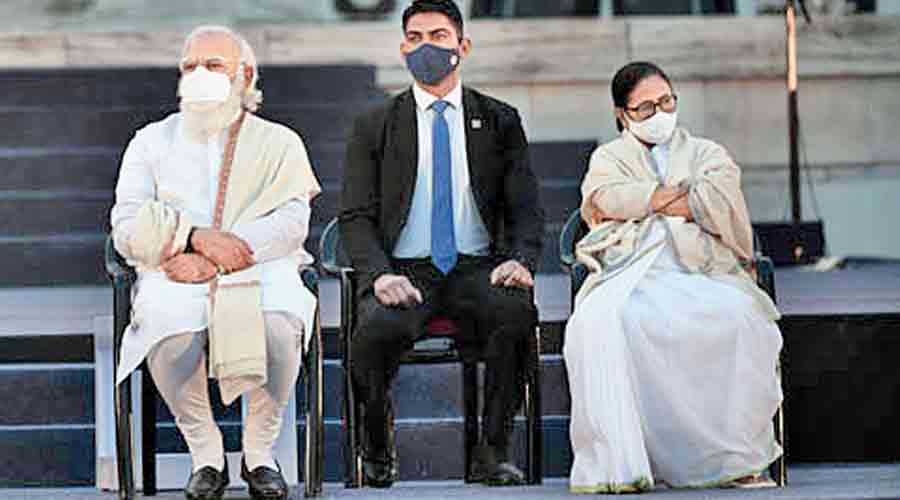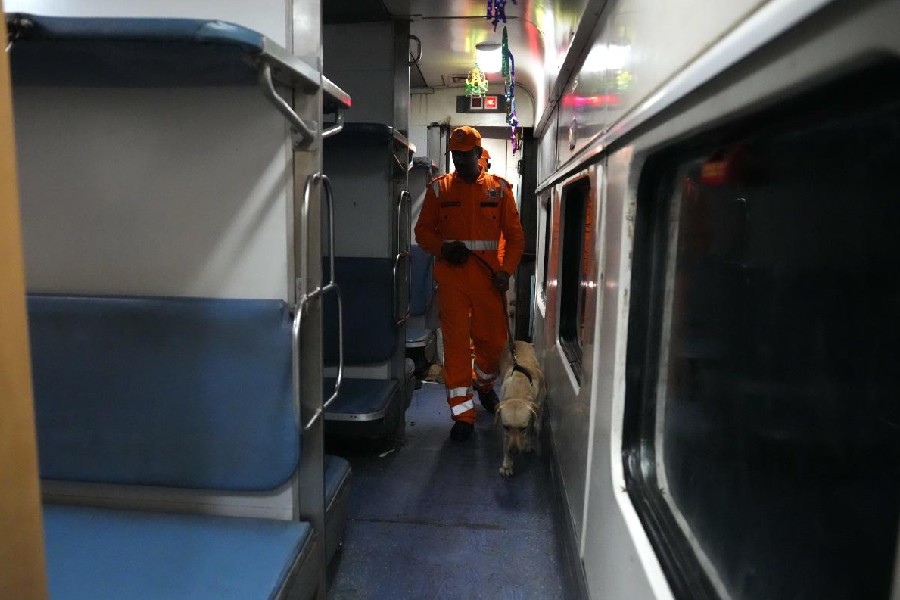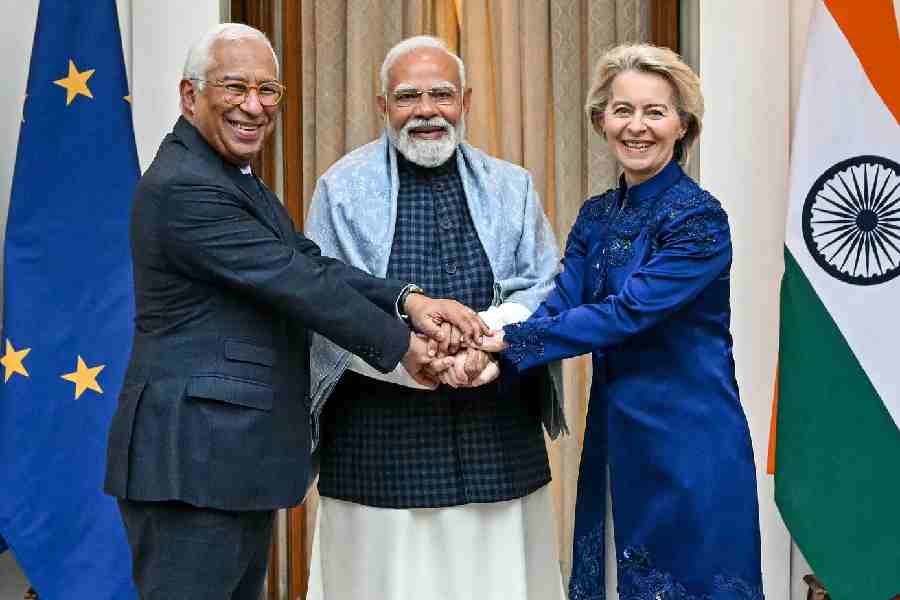Mamata Banerjee on Tuesday wrote to Prime Minister Narendra Modi registering her “strong reservations” over the proposed amendments to the IAS (Cadre) Rules, 1954, and urged him to roll back the decision and uphold the “spirit of co-operative federalism”.
“Not only is the proposed amendment against the spirit of cooperative federalism but the same also upsets the time-tested harmonious arrangement which has existed between the Centre and States in the matter of posting of IAS-IPS officers,” the chief minister wrote in the strongly-worded two-page letter.
The letter took care to argue the role of the states in delivering development and welfare programmes had expanded manifold recently and it invoked Mahatma Gandhi to stress in the ultimate analysis, India resides in its states .
Senior officials said Mamata’s formal opposition to the proposed amendment was just a matter of time as the tweak in the law would enable the Centre to post IAS officers on central deputation bypassing the views of the state governments. The states would be forced to implement the decision within a specific timeframe after the amendment.
“The chief minister wants Bengal Cadre IAS officers to work in the state as she believes shortage of officers would hurt the state’s development...,” said a senior official.
Mamata mentioned in her letter that the move would affect the administration as the state would not be able to plan projects by engaging IAS officers because they would be under the uncertainty of sudden central deputation.
“However, by insisting on officers to be made available for deputation through the proposed amendment, not only will the administration of States be affected but also it would become impossible to assess and plan the administration of a State by engaging such officers who form part of the Central Deputation Reserve, fraught with the uncertainty of their sudden deputation by the Centre,” the letter reads.
She also said: “I invite your kind attention to the proposed amendment in the IAS (Cadre) Rules, 1954 (“Cadre Rules”). I express my strong reservations to the approach followed by the Central Government in proposing such amendment to the Cadre Rules which unilaterally mandates the State Government to make such number of officers available for deputation as prescribed under Central Deputation Reserve.”
Mamata pointed out the manner in which the amendment was framed would make a permanent dent in the spirit of cooperative federalism.
She referred to some recent instances, albeit without mentioning the specific cases like posting of former chief secretary Alapan Bandyopadhyay on central deputation, to highlight how the amendment would legalise such “unwarranted” activities.
“As has been in some recent instances, the Union Government has sought the services of some all India service officers of West Bengal suddenly and unilaterally without any due consultation with the state. The proposed amendment of the Cadre Rules will only legalise such actions which are clearly unwarranted,” read the letter.
Sources said the Union government often gave the excuse of not having enough officers because of the reluctance of the states to send IAS recruits on central deputation behind the amendment. The chief minister countered it in her letter pointing out that not only the Centre but the states also were facing shortage of officers.
“In any event, State and Central Governments across the country are already in great difficulty due to the shortage in the existing IAS/IPS officers,” the chief minister wrote.










